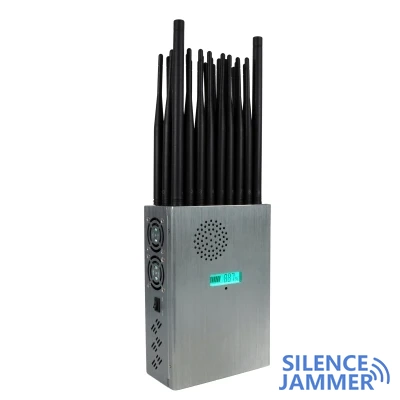A mobile phone signal blocking system is a technical device used to limit or prevent mobile phone signal transmission, and its scope of application covers many fields. Whether in military defense, security monitoring, or in daily life, mobile phone signal blocking systems play an important role. In some cases, such a system can help protect the security of critical facilities and prevent the illegal use of wireless communication equipment; in other scenarios, it may be used to protect personal privacy and restrict mobile phone communications to specific areas. Therefore, mobile phone signal jammers have a wide range of applications, covering many aspects such as security, privacy and communication management.

1. Gas stations (safety protection to prevent gas explosions caused by static electricity on mobile phones) can avoid fires and explosions caused by microwave signal interference. Due to gas storms, the posted notices prohibiting mobile phone calls are not proactive.
2. Meeting rooms of government departments and the military can avoid leaking government secrets. Currently, new spy technology can eavesdrop on the sounds of the surrounding environment through mobile phones. It is necessary to take effective and proactive confidentiality measures for important meeting places.
3. The examination venue and the site where examination questions are given can prevent candidates and invigilators from using modern communication tools to cheat. Blockers can be used to prevent cheating on mobile phones.
4. Meetings in public security unit conference rooms and entire buildings before important arrest operations can prevent participants from using mobile phones to leak secrets. With the help of blockers, the above phenomenon can be prevented.
5. Refineries, petrochemical plants, etc. (safety protection to prevent gas explosion caused by static electricity on mobile phones)
6. Police units (used to control mass movements in specific areas)
7. Anti-terrorism unit (lock on target dynamics of bombs controlled by mobile phones)
8. Military units. (Strictly control areas and places where mobile phones are used)
9. Coastal defense units (mobile communications to prevent coastal smuggling)
10. Prison (to prevent prisoners, news media, visitors, and prison guards from communicating with others outside the regulations)
11. School examination rooms, lecture halls in colleges and universities.
12. Cinemas, opera houses, performance venues. (To prevent the public from enjoying the program)
13. Churches, temples. (need to be quiet areas)
14. Library (can maintain a quiet environment for reading and studying)


